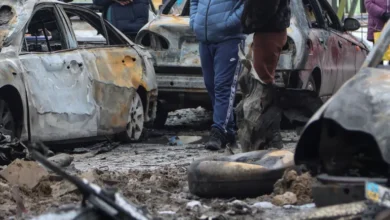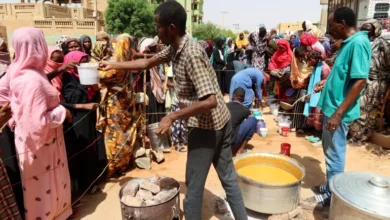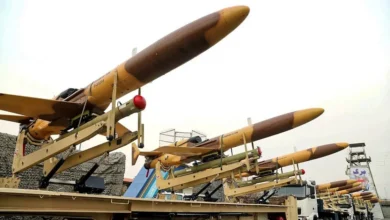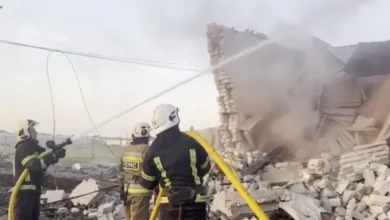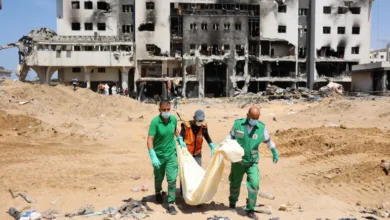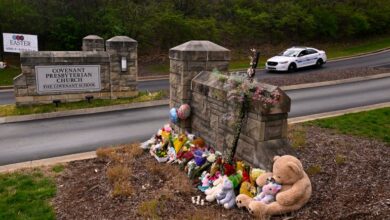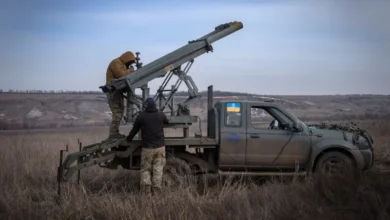Syrians still fear building collapses three months on from quakes
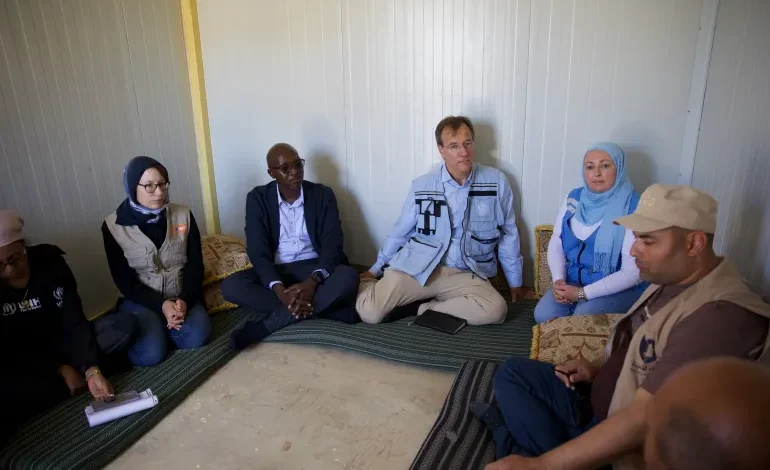
“Since the earthquake, the spectre of death under the rubble still haunts us,” said Ahmed Mazloum, a 43-year-old father of five, who lives in the city of Idlib.
Three months on from the devastating February 6 earthquakes that hit northwestern Syria and southeastern Turkey, which killed more than 50,000 people and left thousands more homeless, Mazloum is still worried about the home he lives in with his parents and his brother’s family.The house has been classified as unsuitable for habitation by a committee of engineers in opposition-controlled northwestern Syria, due to damage to the infrastructure of the building, as well as cracked walls, which now require partial demolition and reinforcement.
“We have had no choice but to stay in the house but I couldn’t afford the cost of the repair, which amounts to more than $2,000. Additionally, there are no tents available in the shelters, and I can’t afford to buy one,” says Mazloum.
“I have placed some supports on the ceilings to protect them from collapsing, but a few stones fall on us every now and then.”
Dilapidated infrastructure
Mazloum’s family is one of hundreds in the area living in houses deemed by experts to be unsafe for habitation.During the earthquakes, almost 2,000 buildings collapsed, and shortly after, more than 4,000 were marked as unsafe and uninhabitable structures, resulting in an estimated economic loss of $1.95bn, according to the Syria Response Coordination Group, a local humanitarian organisation.
Others lost their sources of income as a result of the quakes.The earthquakes have also exacerbated the challenges facing the healthcare sector in northwest Syria, as many facilities were damaged and taken out of service.
The sector was already suffering from a severe shortage of equipment and healthcare workers after 12 years of war against the Syrian government of President Bashar al-Assad.
“Over the past three months, most of the medical reserves in the region have been consumed, in addition to the loss of efficiency of many already dilapidated medical devices, especially X-ray, CT scan, and MRI machines,” said Dr Zuhair al-Qurrat, the top health official in Idlib.Al-Qurrat told Al Jazeera the loss of several healthcare personnel, including technicians and administrators, had affected the performance of the healthcare sector, which already faced a shortage of trained medical staff.
Additionally, 42 medical facilities have been damaged to varying degrees, ranging from 20 percent to 50 percent.
The level of international assistance received by the healthcare sector has been scarce, covering only 25 percent of the actual medication and equipment needs, according to al-Qurrat.
“We are currently unable to treat cancer patients who used to receive treatment in Turkish hospitals, which have stopped accepting patients [from Syria]. The same applies to heart patients in need of surgical procedures,” said al-Qurrat.
UN assessments
A high-level delegation from the United Nations conducted a visit to northwestern Syria on Wednesday to assess the overall situation three months after the earthquakes, as well as to observe camps for displaced people and to evaluate the immediate and necessary relief needs that need to be addressed.
The area was already home to millions of people who have escaped from government-held areas of Syria.
“Almost everyone in northwest Syria was affected by the earthquake and we know that more than 4,500 people have sadly lost their lives. More than 10,500 people were injured and more than 100,000 were displaced” said David Carden, the UN’s deputy regional humanitarian coordinator for the Syria crisis.
Carden told Al Jazeera that, despite the earthquakes, the 2023 Syria humanitarian response plan was badly funded and had only received 7 percent of the funding it needed.
“The key issue is funding, and we do appeal to all our donors to ensure we get the financial support to do our jobs because we heard today that the need in this camp is massive, and the lack of services are due to a lack of funding,” said Carden.

